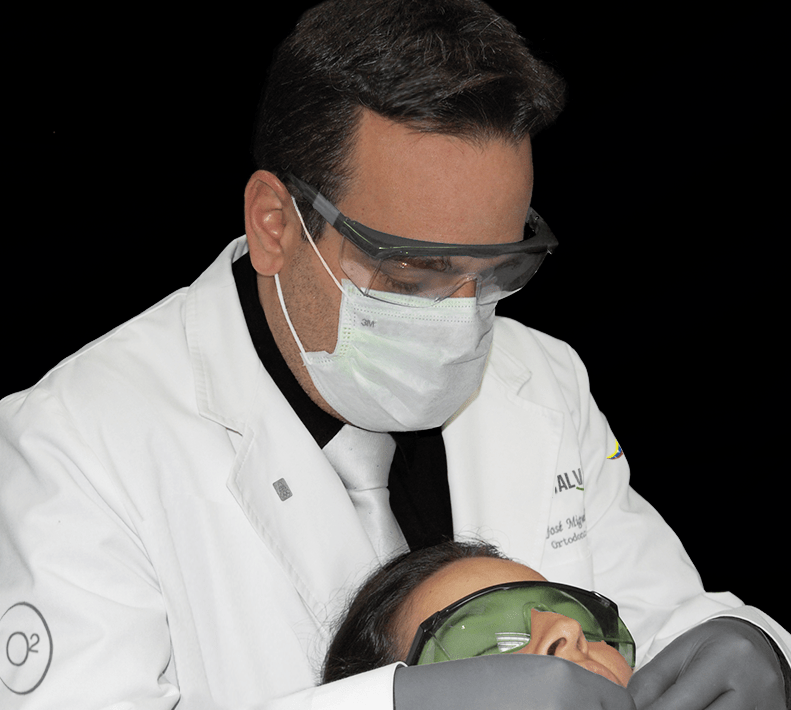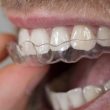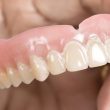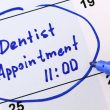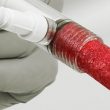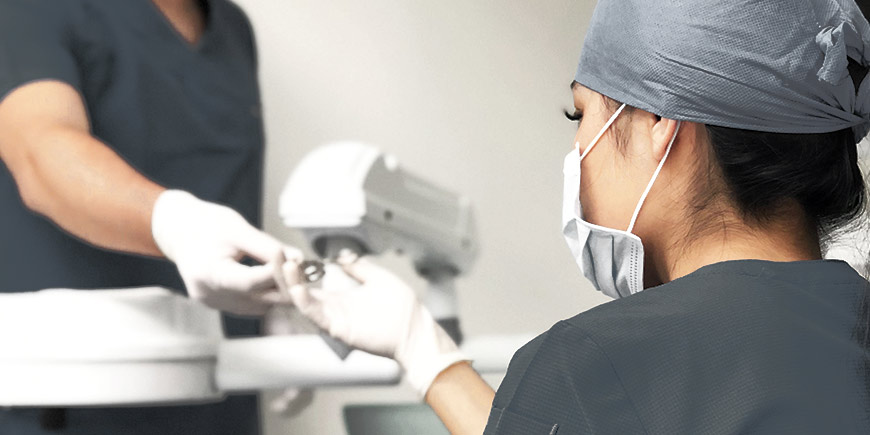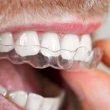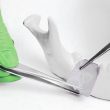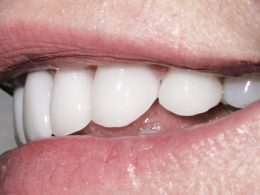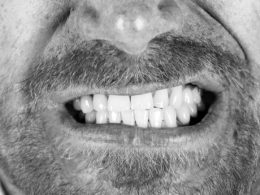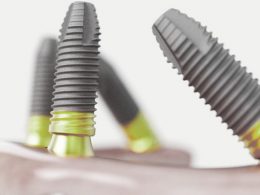Table of Contents
Whether fixed or removable, over implants or natural teeth, any dental prosthesis treatment will fail, or at least its longevity or useful life will be limited; if the patient does not take proper care of it. It may have been carried out by the best specialists, with the best materials and with the latest technologies, but if it is not subjected to a good maintenance protocol, it will probably have its days numbered.
Good oral hygiene is the fundamental pillar of any restorative treatment in Dentistry. In general, the prosthetic patient requires auxiliary methods for the effective removal of dental plaque. Interdental brushes, flossers, and oral irrigators are necessary in the vast majority of cases. If they are not used regularly, the formation of cavities in the remaining tissues, the inflammation of the gums and the infection of the supporting hard tissues; will undoubtedly put the treatment provided at risk.
In addition, periodic professional check-ups and cleanings (every 3 or 6 months as indicated) will be more necessary than ever, since it is the only way to avoid or treat in time any incipient pathological condition that threatens the health of teeth, implants and gums.
Also, a good dose of common sense will be necessary. Your rehabilitation will surely allow you to eat, smile and speak normally, but it will be very susceptible to parafunctional habits and other abuses; mainly bruxism and the chewing of excessively hard foods such as seeds, bones and ice. A protective splint for sleeping is usually an indispensable resource in fixed prosthesis treatments.
Finally, it is important to know that your oral condition, and of course, your prostheses; will always depend on your general health status. Chronic, degenerative, or uncontrolled immune diseases can quickly lead to the loss of prosthetic abutments, restorations and artificial dentures; no matter how careful you are with them.
Instructions for Care and Maintenance of Fixed Prosthesis (Over Implants or Natural Teeth)
The fixed prosthesis is a treatment using artificial crowns that are made to measure and that are cemented on some previously worn natural teeth (stumps), to whom cover or “sheathe”. Also, they can be screwed or cemented over dental implants. If this is your case, make sure to:
- Be careful and avoid biting very hard foods that you should not even bite with natural teeth (seeds, bones, ice and metal objects), as they can fracture the porcelain and make a retreatment necessary. In many cases, these damages are not repairable.
- Be strict and thorough with your oral hygiene. Ideally brush after every meal, or at least, 3 times a day.
- Use, at least at night before going to bed, all the accessory oral hygiene resources that your specialist has indicated. The interdental brush, dental floss for prosthetics, oral irrigator and mouthwash; should be part of your daily routine.
- Sleeping with the protective splint that you have probably been given. Bruxism or dental grinding at night is one of the main enemies of this type of rehabilitation, be it over implants or natural teeth.
- Go to a consultation immediately in case you detect any abnormality, especially if you notice discomfort with cold drinks, bleeding gums or mobility of the prosthesis when biting.
- Go to a check-up or control every 4 months, to have a professional dental cleaning, inspect the condition and adjustment of the prosthesis and rule out or be able to correct in time the appearance of cavities, inflammation of the gums, mobility of abutments, possible debonding, ulcerations or any other relevance alteration.
Instructions for Care and Maintenance of Hybrid Prosthesis (Over Dental Implants)
A hybrid prosthesis is one that combines several materials. It is a single fixed structure that screws onto 4, 6 or 8 implants and generally replaces all the teeth in an arch. It can be made of metal-porcelain or metal-acrylic, and in cases of maxillary atrophy or severe bone resorption, it incorporates pink artificial gingiva to reestablish the vertical occlusal dimension, lip support, dental aesthetics and facial fullness of the person. If this is your case, make sure to:
- As with any type of prosthesis, be careful and avoid biting excessively hard food, as it can fracture the structure or the abutments of the prosthesis. No dental prosthesis is designed to bite down on bones, seeds, ice or foreign bodies. A rational use of your prosthesis will be the best way to avoid additional expenses for repairs and replacement of elements.
- Be strict and thorough with your oral hygiene. Brush after every meal, or at least, 3 times a day. Later, swish vigorously using water or mouthwash to remove or displace any debris trapped between the mucosa and the base of the prosthesis.
- Use, at least at night before going to bed, all the accessory oral hygiene resources that your specialist has indicated. The interdental brush, the special dental floss for prostheses and the oral irrigator are essential to clean the “critical area” of the prosthesis, which is the one that surrounds the mucosa and the abutments that emerge from it. At night, it is essential to finish the process with the use of the Waterpik and irrigation with a 0.2% chlorhexidine solution.
- Go to a consultation immediately in case you detect any abnormality, especially if you feel pain or discomfort when chewing, bleeding when brushing or mobility of the prosthesis.
- Go to a check-up or control every 6 months, to remove the prosthesis, inspect and clean the implants and prosthetic attachments, the soft tissue that surrounds them and the base or internal face of the structure.
Instructions for Handling, Care and Maintenance of Removable Prosthesis (Over Implants or Natural Teeth)
Removable prostheses are designed and manufactured so that the patient can insert and remove them when needed, which greatly facilitates their hygiene. If this is your case, make sure to:
- Always place it with your fingers, placing the clasps or buttons on the teeth or implants that serve as support, pressing until it reaches the correct place, at which time a “click” is usually felt. Never force the prosthesis, or bite on it to bring it into place, as it may damage any element of the device or injure the mucous membranes.
- Remove it by pulling on both sides at the same time (never on one side only), locking the nails of the index fingers of both hands on the clasps or on the edges of the prosthesis.
- Wash the prosthesis and your mouth after every meal. If possible, use floss and fluoride mouthwash. If your prosthesis is over implants, pay special attention to the junction of the abutment with the gum, as this is where more food and bacteria accumulate. If necessary, clean the area with a child brush, an interdental brush or an oral irrigator.
- Clean the appliance (at least once a day) with a children’s toothbrush and a little toothpaste or, better yet, with hand soap, to avoid the formation of tartar and the deposit of stains. Pay special attention to the clasps and metal parts, and if necessary, clean them with alcohol. Afterwards, rinse the prosthesis very well with water.
- Remove the prosthesis to sleep, so that the tissues rest from the pressure to which they are subjected. Sleeping with a removable prosthesis is like sleeping with shoes. It is advisable to massage the gums, to improve their blood flow and prevent, as far as possible, its reabsorption.
- Store it in water with disinfectant tablets to avoid dehydration of the acrylic components.
- Go immediately for consultation in case of ulcerations, pain or instability of the prosthesis. Never try to solve the problem yourself.
- Go to a check-up or control every 6 months, to have a professional dental cleaning, observe the state of the teeth, implants and mucous membranes, detect excessive wear due to occlusion problems and make the necessary adaptations to correct the imbalances caused by the change in shape of the jaws or the position of the teeth; which inevitably occur with the passage of time.
Instructions for Handling, Care and Maintenance of Conventional Total Dentures (Muco-Supported)
A total denture is a removable substitute for all teeth in the arch and their surrounding tissues. Prosthetics of this type are used when all natural parts have been lost and there is no possibility or desire to be treated with dental implants. If this is your case, be sure to:
- Wash the prosthesis and your mouth after each meal, using a child’s toothbrush or very soft bristles. Even if you do not have teeth, use a little toothpaste and gently brush your mucous membranes as well.
- Remove the prosthesis to sleep, so that the tissues rest from the pressure to which they are subjected. Sleeping with a total denture is like sleeping with shoes. It is advisable to massage the gums, to improve their blood flow and prevent, as far as possible, their reabsorption.
- Store it in water with disinfectant tablets to avoid dehydration of the acrylic components.
- When you see that staining or tartar deposits accumulate that are not removed with daily cleaning, you can ask us to send your denture to the laboratory for mechanical abrasion and disinfection, which is recommended at least once a year.
- Go immediately for consultation in case of ulcerations, pain or instability of the prosthesis. Never try to solve the problem yourself.
- Go for a check-up or control every 6 months, or at most, 1 time a year. The jaws, over time, undergo resorption and with this there are imbalances in the prostheses that must be evaluated for their correction. Among the adaptations that must be made from time to time are the relined, which consist of filling with acrylic (plastic) the bases of the prostheses that have lost contact with the mucosa, in order to improve their adhesion and stability.
“The Longevity or Duration in Years of Any Oral Rehabilitation, Will Depend on Many Factors, Being the Collaboration of the Patient One of the Most Important”.
DENTAL TIP
Come to Venezuela and Forget About Removable Dentures!
Never forget that dental tourism is an extraordinary tool for accessing top-notch Dentistry.
DENTAL VIP trusts that quality of dental care should be affordable to all, no matter where you live. Hundreds of patients come to Venezuela for state-of-the-art medical and dental care every year, saving large amounts of money on health. Our rates are significantly lower than in any other Latin American country (up to 70% off), without it implying a decrease or compromise in the quality of service. Our Professional Staff is one of the best in the country and has extensive experience in dental and zygomatic implants, metal-free crowns and bridges, oral rehabilitation, smile design and cosmetic dentistry.
We guarantee that by using the services offered by DENTAL VIP, you will be cared for in modern facilities, with state-of-the-art equipment and under the standards of the most demanding international dental protocols.
Come for the price and stay for the quality! Contact us today through WhatsApp +58 414-9033547 or Email and we will let you know, according to your case, all the evaluations and basic studies required for your treatment.
